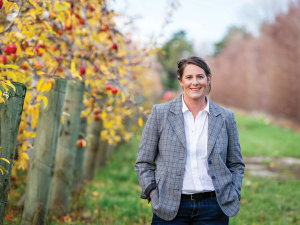The Soil & Health Association says that New Zealand won’t need a loosening of regulations around gene editing (GE) and genetic modification (GM) or genetically modified organisms (GMOs) to combat climate change.
Instead, the organisation says the country needs significant investment in organic, regenerative agriculture.
The comments come in the aftermath of the National Party’s announcement that, if it is elected in October, it will reverse the ban on gene editing.
National Party Science, Innovation, and Technology spokesperson Judith Collins says the move would unlock significant benefits for climate change, agriculture, and health science.
“New Zealand can be a world leader in reducing agricultural emissions and benefit from other innovations in health, nutrition, and the environment with gene technology rules that are fit-for-purpose,” Collins says.
However, Soil & Health Association chair Jenny Lux says the country’s GMO-free and GE-free stance is a major point of difference in the world market.
“We already have an advantage in being an island nation in the South Pacific, and need to be really careful about any uncontrolled releases of GMOs into the outdoors,” she says.
“Our products are attractive to overseas buyers because they’re seen as clean, safe, natural and uncontaminated. Once we release GMOs, there’s no containing them. We need to continue to safeguard our environment and our brand.”
Lux says that agricultural solutions to lower greenhouse gas emissions, such as reducing or eliminating synthetic nitrogen fertilisers, have not been implemented at scale.
She says GE hasn’t lived up to the hype so far, claiming that a $25 million New Zealand GE ryegrass trial has not yet yielded more dry matter than traditionally bred ryegrass.
“It’s already been demonstrated that diverse, mixed species pastures reduce ruminant methane emissions, and are more resilient to climate extremes,” Lux says. “Organic regenerative farming methods are free for all farmers to adopt, and, unsurprisingly, they’re not under any patents.”
Both Lux and the Soil & Health Association are urging all political parties not to loosen regulations on gene editing and genetic modification in New Zealand.
Instead, they want direct attention and funding focused on expanding organic farming.
“We need research centres dedicated to organic, regenerative agriculture and farmer extension programmes to build that knowledge in rural communities,” says Lux.



















